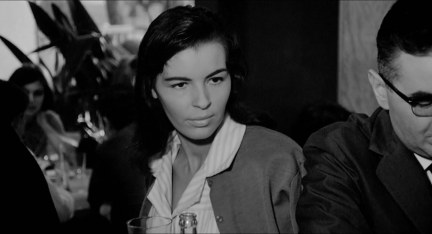Battle of Algiers (Day 41)
 My Opinion: 8.3 || Harrowing, unique, and deeply insightful. Gets into the marrow of a political and military conflict like no other film I’ve seen. Gripping documentary-style realism and admirable evenhanded in depicting both sides of the conflict. Great movie.
My Opinion: 8.3 || Harrowing, unique, and deeply insightful. Gets into the marrow of a political and military conflict like no other film I’ve seen. Gripping documentary-style realism and admirable evenhanded in depicting both sides of the conflict. Great movie.
TITLE: Battle of Algiers (La battaglia di Algeri)
DIRECTOR: Gillo Pontecorvo
LANGUAGE: French | COUNTRY: Algeria
YEAR: 1966
PROFILE: Political, War | 121 minutes | IMDb (8.2)
SYNOPSIS (Courtesy of Netflix): One of the most influential films in the history of political cinema, Gillo Pontecorvo’s The Battle of Algiers focuses on the events of 1957, a key year in Algeria’s struggle for independence from France. Shot in the streets of Algiers in documentary style, the film vividly re-creates the tumultuous Algerian uprising against the occupying French. The violence soon escalates on both sides in this war drama that’s still astonishingly relevant.
Strengths: Pontecorvo’s liberal use of documentary- and newsreel-style elements produces great verisimilitude, vividly capturing the time and place. The steady escalation of extreme tactics and brutal violence is riveting to follow — and just as salient today as it was in 1966.

To the filmmakers’ immense credit, they scrupulously avoid overt moralizing. In fact, they allow the terrorists and torturers to make their cases with intelligence and from a position of principle. There are no straw men here. No stacking of the deck against certain positions. Pontecorvo gives each of the perspectives its due. A rare (maybe unequalled) degree of nuance, evenhandedness, and insight.
It’s useful to compare Battle of Algiers with Z, which was made a few years later and which covers related ground. Although the latter is a good movie in many ways, Costa-Gavras wears his sympathies on his sleeve and severely tilts the narrative. The members of the military junta are slightly buffoonish, consistently hypocritical, and never (except perhaps at the very beginning) allowed to speak from a position of principle. Costa-Gavras doesn’t need to make the fascists look better than they deserve, but he goes a step too far in presenting them in such a narratively crippled position. In Battle of Algiers, we have a more mature and illuminating depiction of how police states develop and how excesses are rationalized (as well as how terrorism builds).

Weaknesses/Characters: You would never consider this a character-driven movie. Although several characters are well defined, we have very little inkling of anyone’s inner life. It’s more of a cinematic textbook about insurgency and counter-insurgency than a true “narrative.” That’s probably a necessary trade-off, however, given the movie’s length and how much it does accomplish.
Best Moment: Many, many good moments, but two stand out. After the French forces engineer a bombing in the Casbah, the Algerian insurgents stage simultaneous bombings in the European quarter. As we closely follow the smuggling and planting of the three bombs, we’re swayed by our own anger at the French attack and by identification with the women planting the bombs. So much so that we feel drawn to have them succeed even as Pontecorvo plainly shows us the innocent French who are about to be massacred. We become complicit in the terrorism, which is a powerful achievement.

On the opposite side of the equation is the French commander’s highly articulate and well-reasoned defense of what today would be called “enhanced interrogation techniques.” He’s a fascinating figure in every scene because he’s perpetuating a cruel (and doomed) colonial regime, but the film grants him both intelligence and a coherent ethical perspective. Pontecorvo is sure-handed enough to display both the terribleness of the torture and the unnervingly reasonable arguments behind it.
File Under: war, torture, terrorism, insurgency, colonialism
Pingback: Feed Me Subtitles: Best of Week 6 « Folded Story Project
Pingback: Feed Me Subtitles: Best of the Second Month | Folded Story Project
Pingback: The End For Now | Feed Me Subtitles